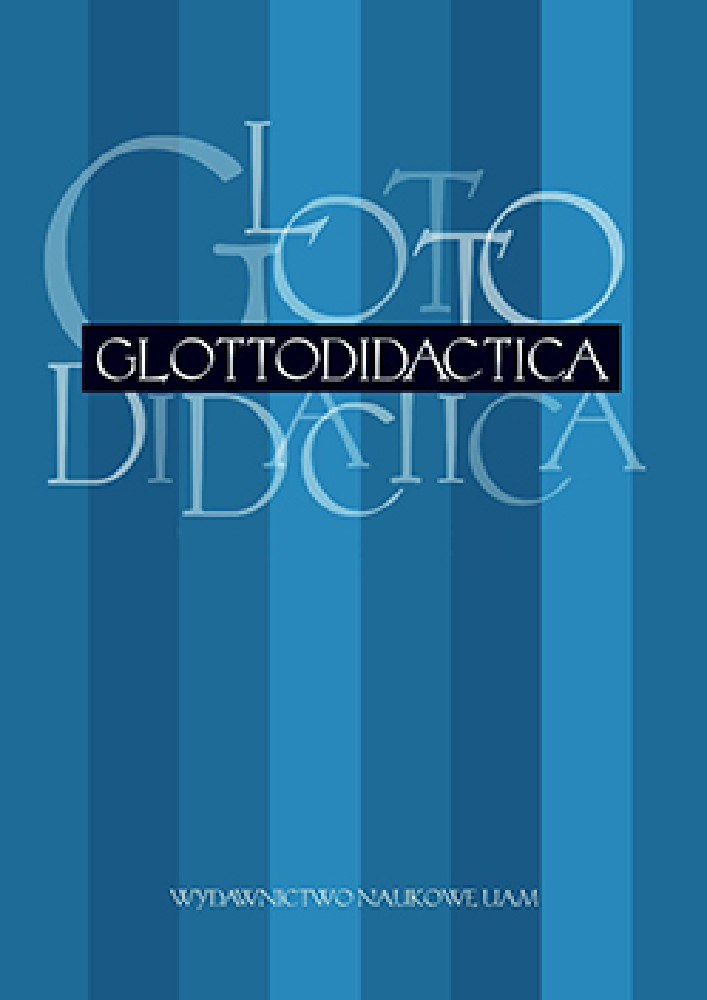Abstract
In a positively-oriented foreign language pedagogy, where learner autonomy is of utmost importance, focus should be placed on learner resilience. Subsequently, the formation of a resilient learner should be regarded as one of the aims of the formal schooling system on all levels of its functioning. The advantages of the presence of the resilient learner in a properly constructed ecosystem of the school are manifold and are, generally, aimed at generating a high degree of success in school tasks as well as at providing the human society with resilient participants.References
Berkes, F., Colding, J., Folke C. (eds), 2003. Navigating social-ecological systems: building resilience for complexity and change. Cambridge: Cambridge University Press.
Cicchetti, D. (ed.), 1989. The emergence of a new discipline: Rochester symposium on developmental psychopathology. Hillsdale, N.J.: Lawrence Erlbaum Associates.
Doll, B., Lyon M.A., 1998. Risk and resilience: implications for the delivery of educational and mental health in schools. In: School Psychology Review 27/3, 248–263.
Folke, C., Carpenter, S., Elmqvist, T., Gunderson, L., Holling, C.S., Walker, B., 2002. Resilience and sustainable development: building adaptive capacity in a world of transformations. In: Ambio 31/5, 437–440.
Folke, C., Colding, J., Berkes, F., 2003. Synthesis: building resilience for adaptive capacity in
social-ecological systems. In: Berkes, F. et al. (eds) 352–387.
Holling, C.S., 1973. Resilience and stability of ecological systems. In: Annual Review of Ecology and Systematics 4, 1–23.
Jørgensen, S.E. (ed.), 2010. Encyclopedia of ecology. Amsterdam: Elsevier.
McCormick, B., 1995. History and state of the art in behavioural methods for hearing assessment in low-functioning children. In: Scandinavian Audiology 24 (Supplement 41), 31–35.
Masten, A.S., 1989. Resilience in development: implications of the study of successful adaptation for developmental psychopathology. In: Cicchetti, D. (ed.). Vol. 1, 261–294.
Masten, A.S., Best, K.M., Garmezy, N., 1990. Resilience and development: contributions from the study of children who overcome adversity. In: Development and Psychopathology 2, 425–444.
Masten, A.S., Gewirtz, A.H., 2006. Resilience in development: the importance of early childhood. In: Tremblay, R.E. et al. (eds), 1–6.
Masten, A.S., Obradović, J., 2006. Competence and resilience in development. In: Annals of the New York Academy of Sciences 1094, 13–27.
Matsinos, Y.G., 2010. Resilience. In: Jørgensen, S.E. (ed.). Vol. 4, 3000–3004.
Nicolopoulou-Stamati, P., Hens, L., Howard, C.V. (eds), 2007. Congenital diseases and the environment. Berlin: Springer Verlag.
Ong, A.D., Bergeman, C.S., Bisconti, T.L., Wallace, K.A., 2006. Psychological resilience, positive emotions, and successful adaptation to stress in later life. In: Journal of Personality and Social Psychology 91.4, 730–749.
Puppel, S., 2004. An outline of a domain-resource-agent-access-management (DRAAM) model of human communication: towards an ecology of human communication. In: Electronic Journal Oikeios Logos 1, 1–27.
Puppel, S., 2009. Healthy’ first language acquisition is dependent on the necessarily interlocked and synergistic nature of the ‘biological-psychological’ and ‘social-cultural’ milieus. In: Electronic Journal Oikeios Logos 5, 1–10.
van Schrojenstein Lantman-de Valk, H.M.J., van den Akker, M.A., Maaskant, M.J., Urlings, H.F.J., Kessels, A.G.H., Crebolder, H.F.J.M., 1997. Prevalence and incidence of health problems in people with intellectual disability. In: Journal of Intellectual Disability Research 41/1, 42–51.
Thomsen, K., 2002. Building resilient students: integrating resiliency into what you already know and do. Thousand Oaks, CA: Sage Publications/Corwin Press.
Tremblay, R.E., Barr, R.G., Peters R. De V. (eds), 2004. Encyclopedia on early childhood development. Montreal: Centre of Excellence for Early Childhood Development. Available at: <http://www-encyclopedia.com/documents/Masten-Gewirtz ANGxp.pdf>.
Waxman, H.C., Padrón, Y.N., Gray, J.P. (eds), 2004. Educational resiliency: student, teacher, and school perspectives. Greenwich, CT: Information Age Publishing.
License
Authors
Authors of texts accepted for publication in Glottodidactica are required to complete, sign and return to the Editorial team’s office the Agreement for granting a royalty-free license to works with a commitment to grant a CC sub-license.
Under the agreement, the authors of the texts published in Glottodidactica grant Adam Mickiewicz University in Poznań a non-exclusive, royalty-free license and authorize the use of Attribution-NoDerivatives 4.0 International (CC BY-ND 4.0) Creative Commons sub-license.
The authors retain the right to the free disposal of the work.
Users
Interested Internet users are entitled to use works that have been published in Glottodidactica since 2016, under the following conditions:
▪ attribution – obligation to provide, together with the distributed work, information about the authorship, title, source (link to the original work, DOI) and the license itself.
▪ no derivatives – the work must be preserved in its original form. Without the author's consent, it is not possible to distribute the modified work in the form of translations, publications, etc.
Copyrights are reserved for all texts published before 2016.
Miscellaneous
Adam Mickiewicz University in Poznań retains the property right as a whole (layout, graphic form, title, cover design, logo etc.).
Privacy statement
The names and email addresses published on this journal site will be used exclusively for the purposes declared by this journal and cannot be used for any other purpose or by any other party.




